Sou vide
The sous-vide experience: A steak, inside bright pink, full of aromatic meat juice - seared on the outside with the necessary dose of roasted aromas. The image above should help the imagination on the jumps. To roast meat so that it succeeds without exception and always so perfect, is actually very easy - if you know the sous vide cooking method. It brings the necessary respect to noble ingredients and flatters the sensitive meat cells, which repays every single ingredient with full taste and perfect consistency. The catch on the matter: Professional equipment for this cooking method is hardly affordable for amateur chefs. Therefore, I show what is hidden behind Sous-vide, which processes are initiated in Sous-vide cooking and how to theoretically build even with the simplest kitchen equipment a small sous-vide station in the kitchen.
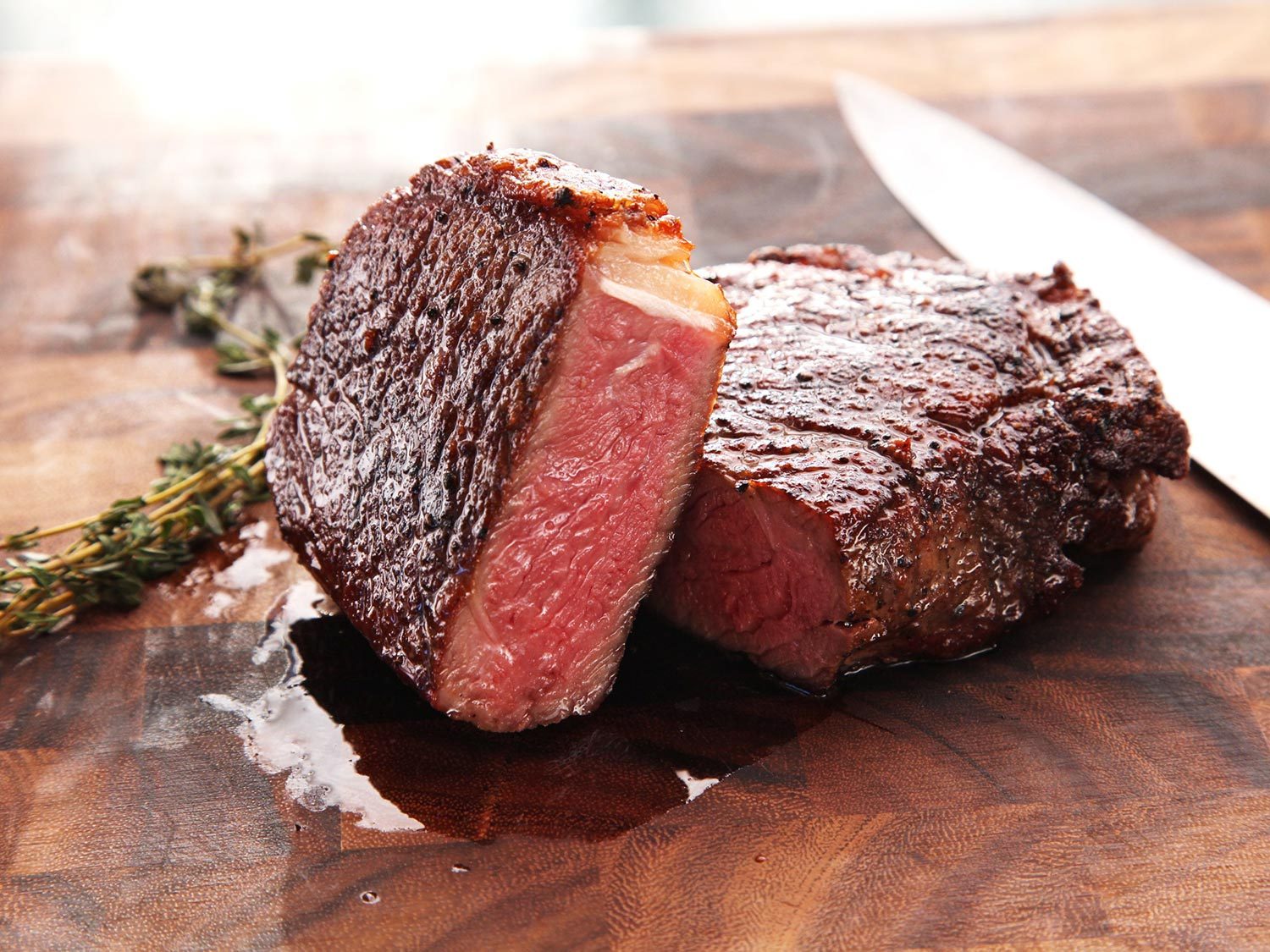
Why is sous vide worthwhile?
The cell structure of meat, fish and vegetables is - as with any organic matter - very sensitive, which is why high temperatures can quickly do a great deal of damage. Specifically, this means when cooking: The meat is dry and tough, vegetables tasteless and mushy. Everyone who has ever fried a steak in the pan knows this effect. When cutting, you can see that the outer areas of the steak are gray and dry. These areas are overgrown by contact with high heat and actually have no culinary value. To avoid this unwanted meat reaction, cooks decades ago have already begun to cook food at very low temperatures in order not to even come in temperature areas where overgrowth threatens. Especially low-temperature cooking in the oven has also found its way into family kitchens in recent years. At temperatures between 55 and 70 degrees (depending on the type of meat), a large piece of meat cooks in the oven for a long time after it has been seared shortly. The result is in the best case a roast, the outside crispy and inside evenly pink and juicy remained. The disadvantage of low temperature cooking in the oven: In spite of the low temperature escapes liquid, also makes this method only for larger pieces of meat really sense.

How does Sous-vide work?
The sous vide method works on the same principle: ingredients are cooked at the lowest possible temperature, as gently as possible, with a significant difference. The name itself - sous-vide - stands for the most important utensil: a vacuum bag (le vide = the vacuum). Because in contrast to the so far proven method of cooking in the oven, cook the ingredients in the sous-vide method in a water bath, welded in a vacuum packaging. This has the unbeatable advantage that no liquid can escape - meat and fish cook in their own juice and do not lose any valuable flavor. By controlling the temperature of the water, a very precise cooking temperature can be maintained. In top-class restaurants, therefore, special vacuumers and thermalizers are used which, on the one hand, remove any air from the vacuum pack and, on the other hand, precisely temper the water to a decimal point behind the decimal point.
The process of sous-vide cooking in a water bath may initially give a strange picture for beginners, because the idea of steak on the smoking grill is admittedly very beguiling, but more and more top caterers rely on cooking in a vacuum bag - with good reason: the undesirable effects which are normally encountered when cooking food can be reduced to an absolute minimum during sous-vide cooking. Meat and fish do not contract and therefore push little liquid outwards, the pieces stay in shape and lose only minimal weight. In addition, the method is extremely reliable. Once you choose the right water temperature, overcooking is simply no longer possible, it does not depend on decisive seconds or minutes of heat - perfect results can be reproduced as on the assembly line. Who waits for guests, no longer needs to worry about minute-exact timing, since the sous-vide method allows time scope. This benefits the consumer in the private household as well as the star chef in his canteen kitchen. For a long time, Sous-vide was considered an insider's tip, but it was long praised by the pioneers of molecular gastronomy as the gentlest cooking method. Not only meat, fish and vegetables are cooked sous vide today, but also fruits such as strawberries, apples or nectarines
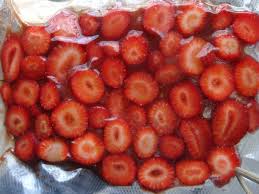.jpeg)
(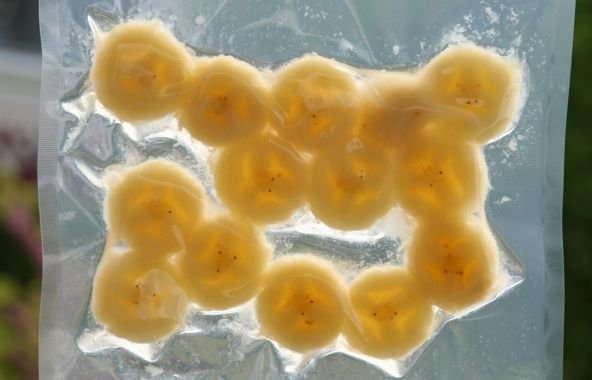 )
)
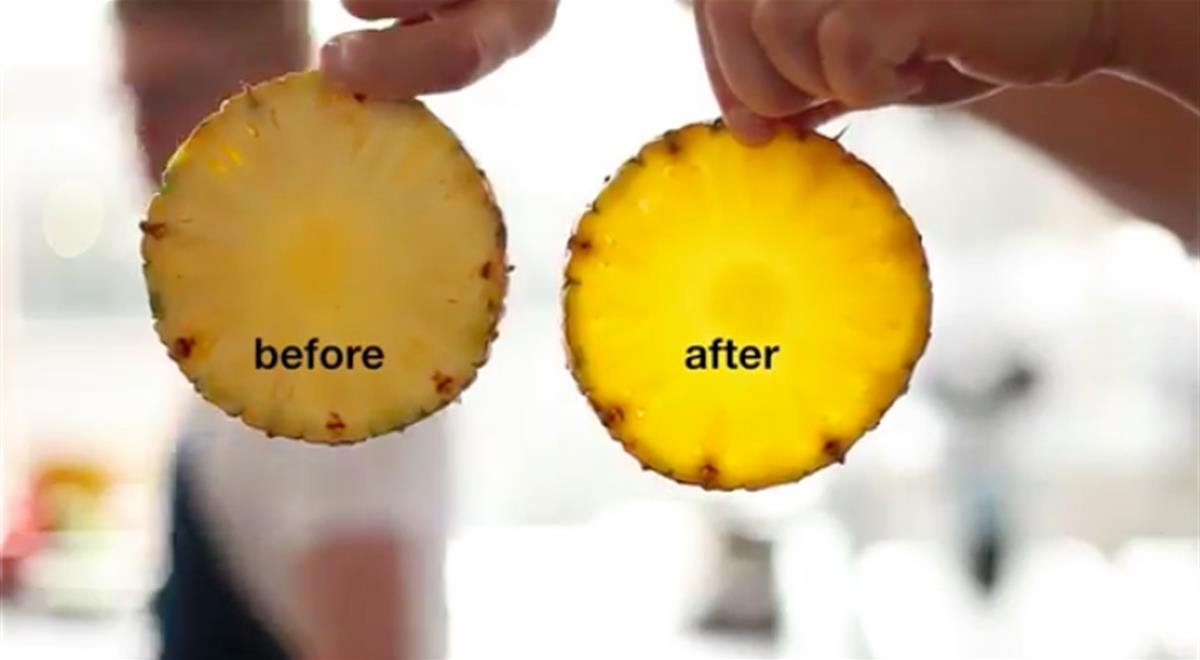.jpeg)
Buy sous-vide appliances
How can this auspicious way of cooking be celebrated in the kitchen of the amateur cook? Which devices are needed to make the most of the advantages of the method? Basically you need three things: a themalizer (water bath or immersion circulator), a vacuum sealer and vacuum foils. The individual devices are available in different quality levels, for beginners to professional chefs.

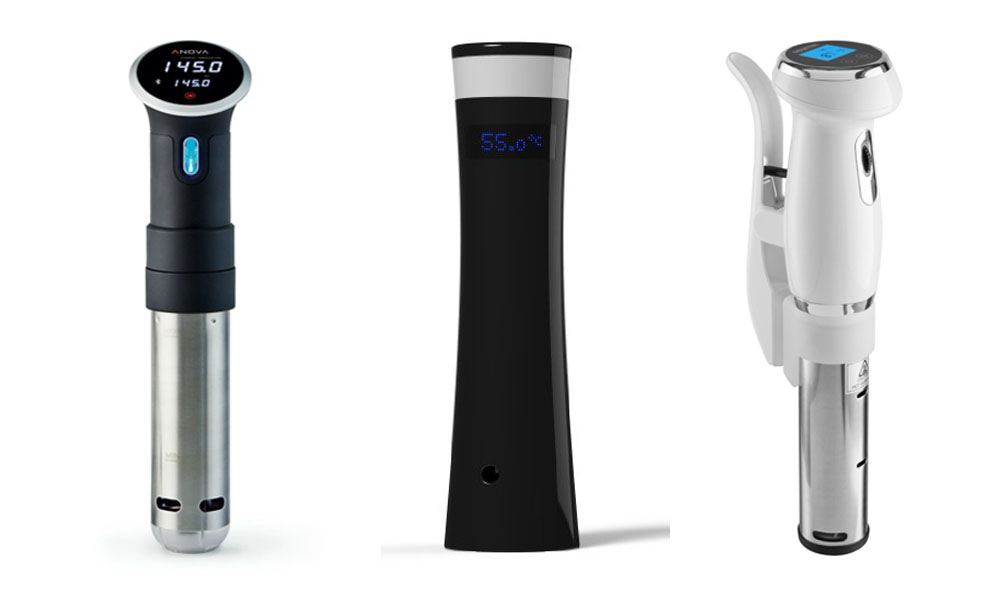
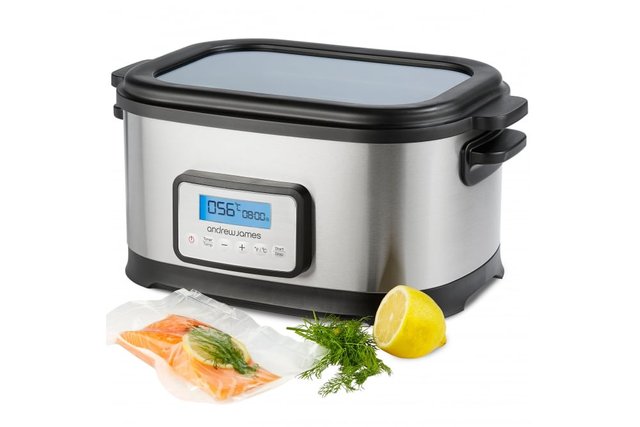
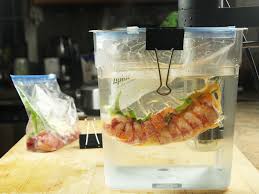.jpeg)
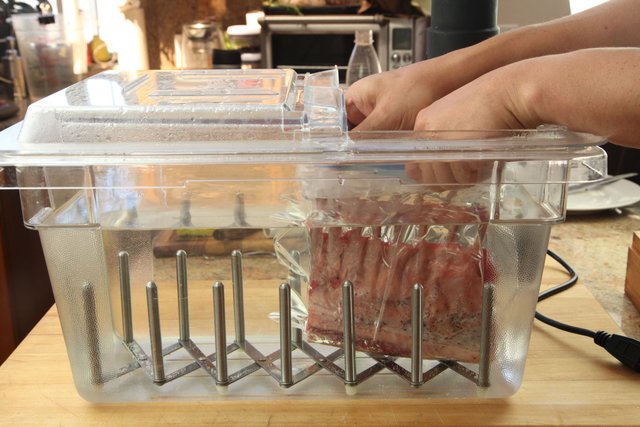
Create a vacuum for sous vide
Professional cooks use special bags for vacuum cooking that have been specially produced for use in hot water. These bags are expensive, so we resort to simple freezer bags. They are often filled with hot liquids before they end up in the chest and must withstand high temperatures. To be on the safe side, you should first make sure that the freezer bags are actually heat-resistant, so that no toxic components escape from the plastic at high temperatures - in case of doubt, call the service hotline of the bag manufacturer. Now place meat / fish / vegetables on the bottom of the bag, grasp the opening of the bag at the top and take it completely into the mouth. With two powerful pulmonary tracts, the entire air has been sucked out of the bag, which is then turned in two to three times and closed with a clothespin or a freezer bag clamp. Similarly, it works well with a straw, so you save direct mouth contact with the bag. In contrast to the professional vacuum sealer you will never be able to suck 100% of the air out of the bag, but a minimal remainder does not harm the result according to our experience - unless you are cooking at star level. The fact that enough air was "sucked off" can be recognized by the fact that the bag "sticks" to the meat from the outside.
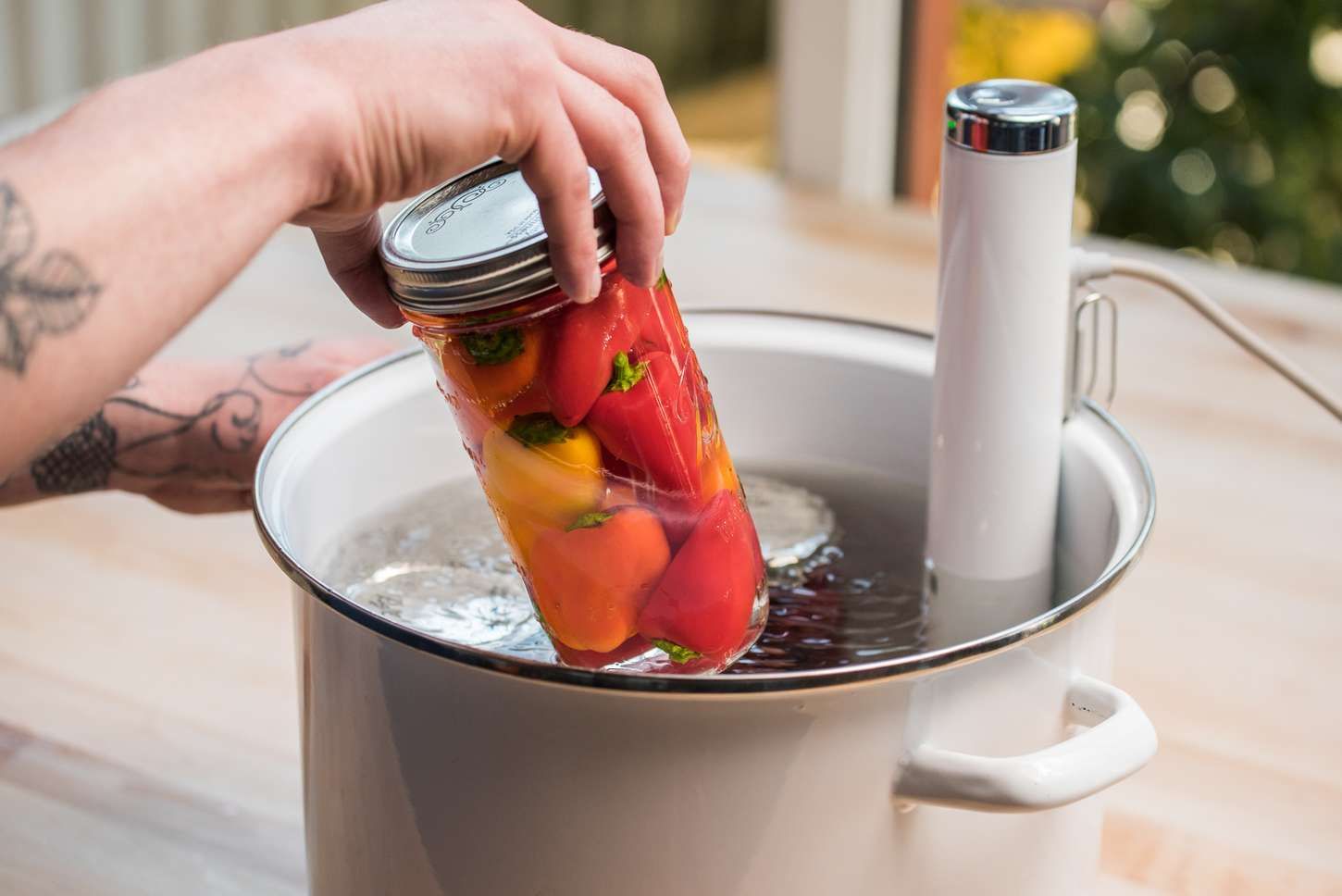
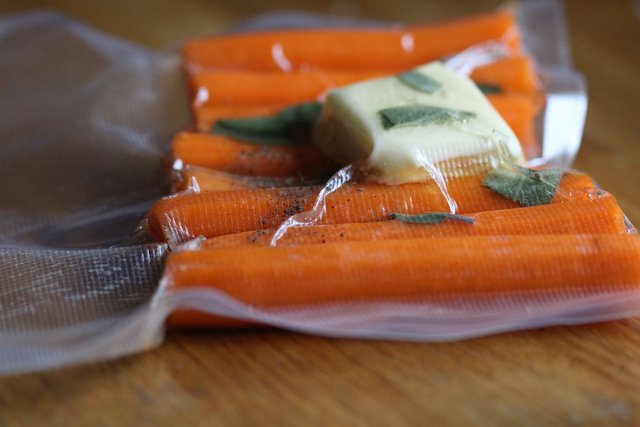
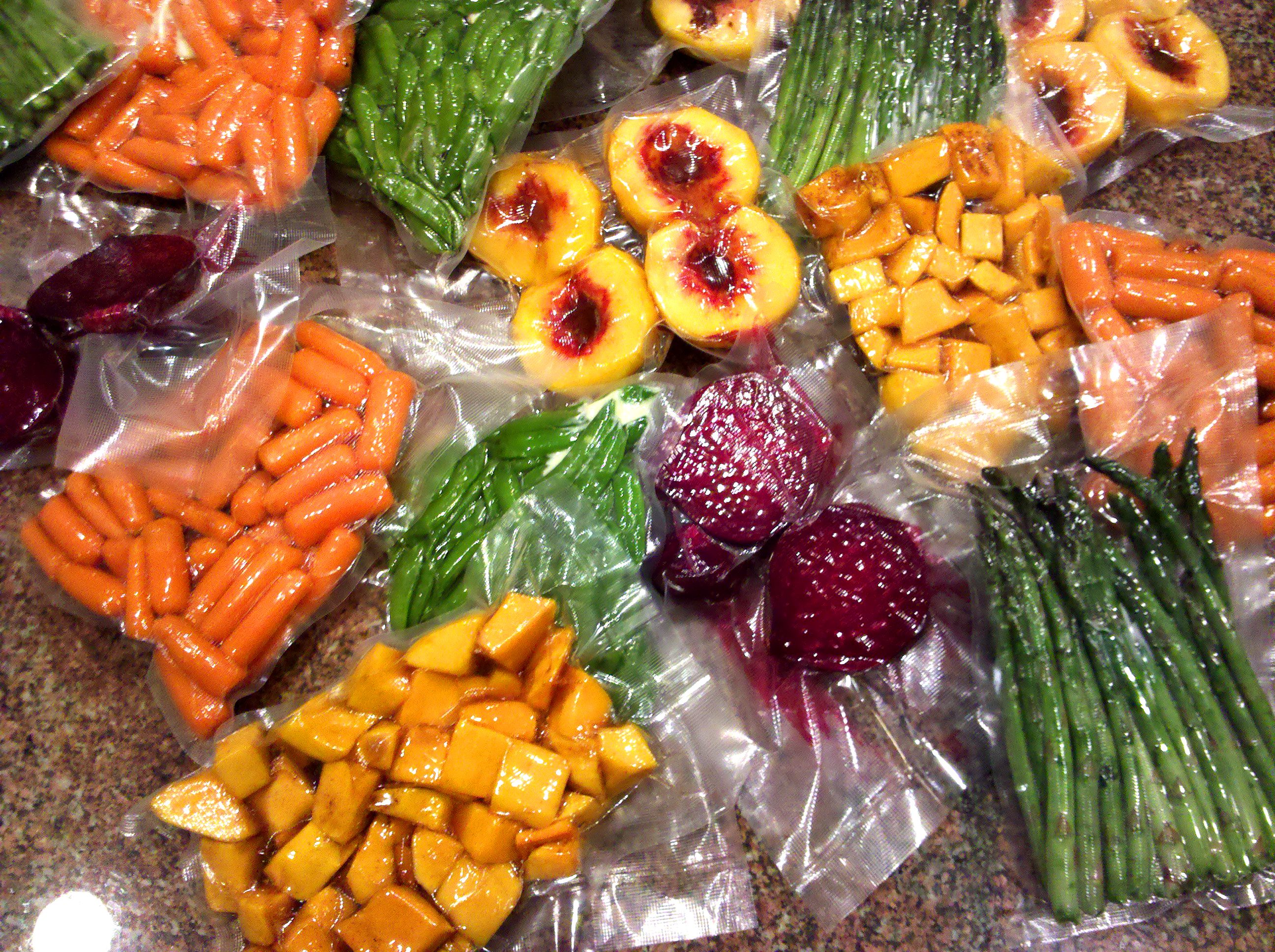
Sous-vide cooking with homemade equipment
Once the desired temperature has been reached, place the vacuum bag together with the filling in the hot water - so that the opening protrudes from the top of the water. From now on, you should now and then check the temperature of the water, because this should remain as constant as possible. This permanent control saves the owner of a thermalizer. For meat or fish, it is recommended after the end of the cooking process, the steak or fillet briefly at the highest temperature to saute (arosieren) to evoke the Maillard reaction. It produces the roasts and also the characteristic roasted taste.
The cooking time depends on the content and size of the food to be cooked, but our experience I will successively announce here. The results have been consistently convincing. The differences between preparation with professional equipment and self-made sous-vide station are compared to the additional cost of professional equipment comparatively low.
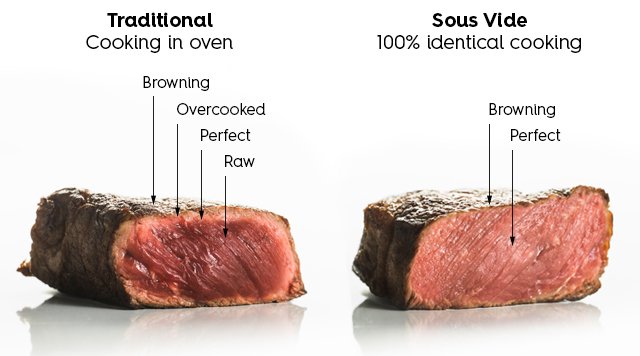
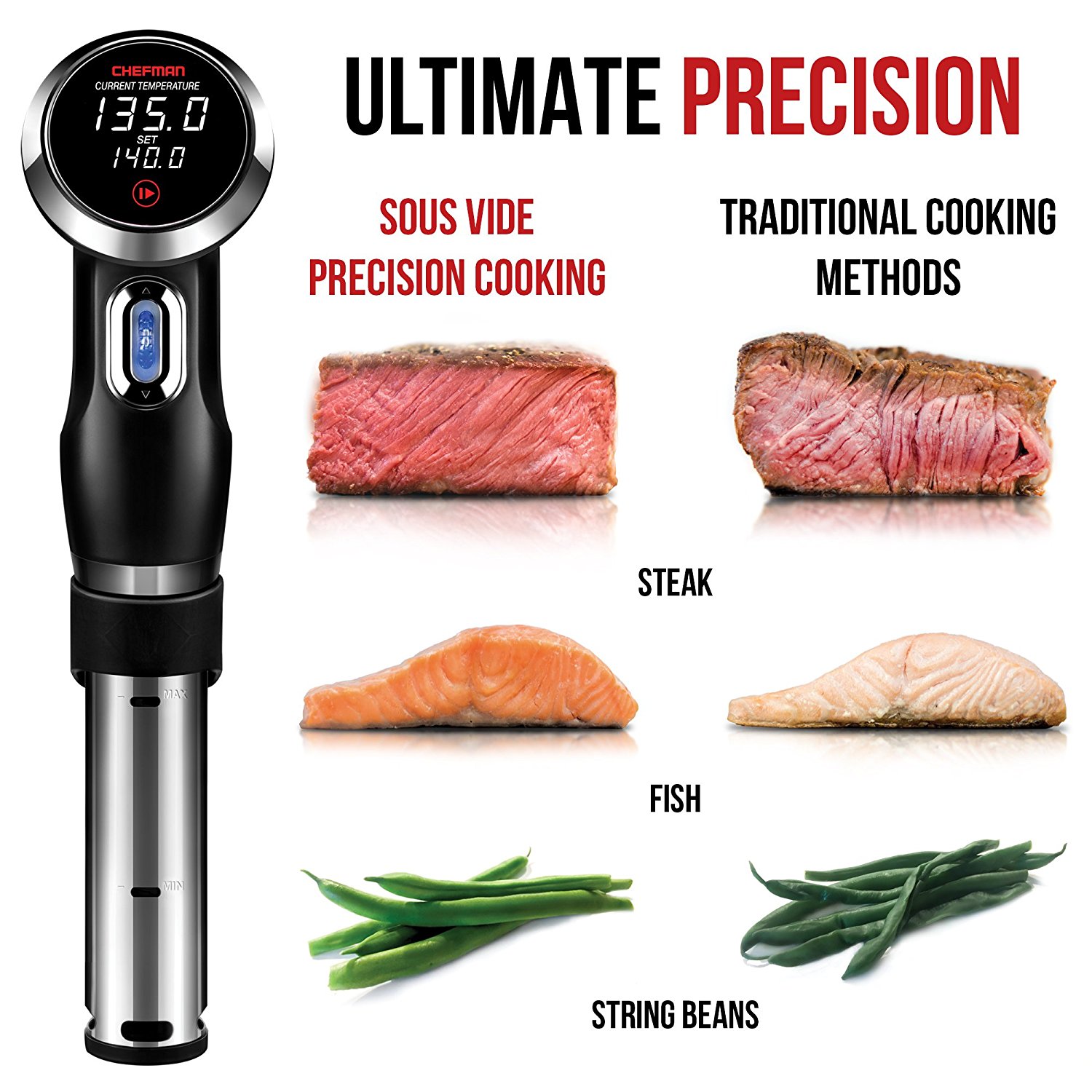
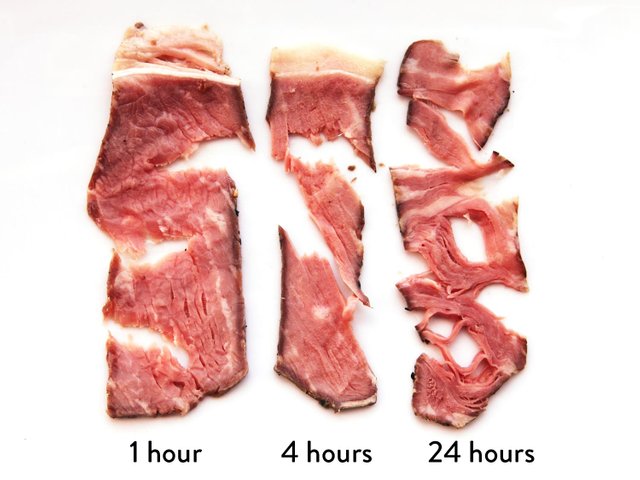
you still have questions !!
then write me in the comments
if you like it vote me
many thanks
There is a big different between sous vide and regular cooking. Seems like its much better since the inside of food cooks better. Thanks for the post, it was very educational.
Downvoting a post can decrease pending rewards and make it less visible. Common reasons:
Submit
you are welcome
Downvoting a post can decrease pending rewards and make it less visible. Common reasons:
Submit